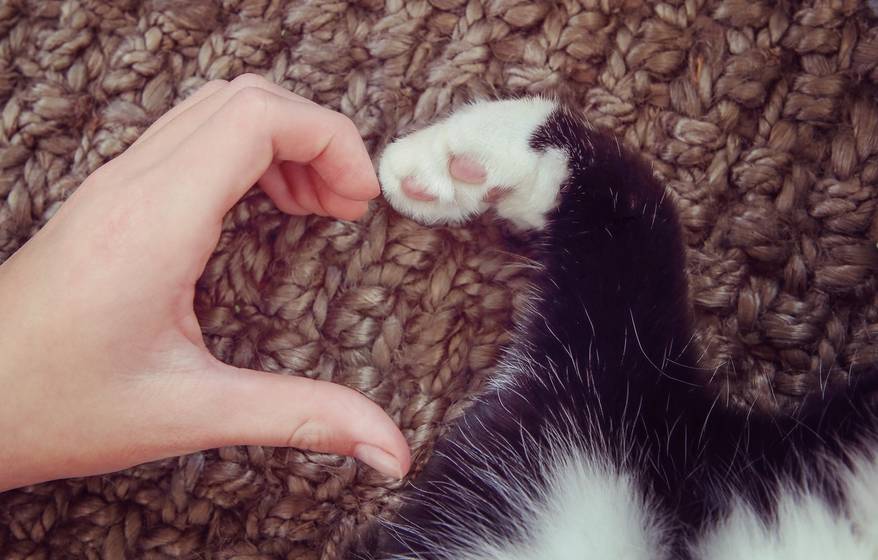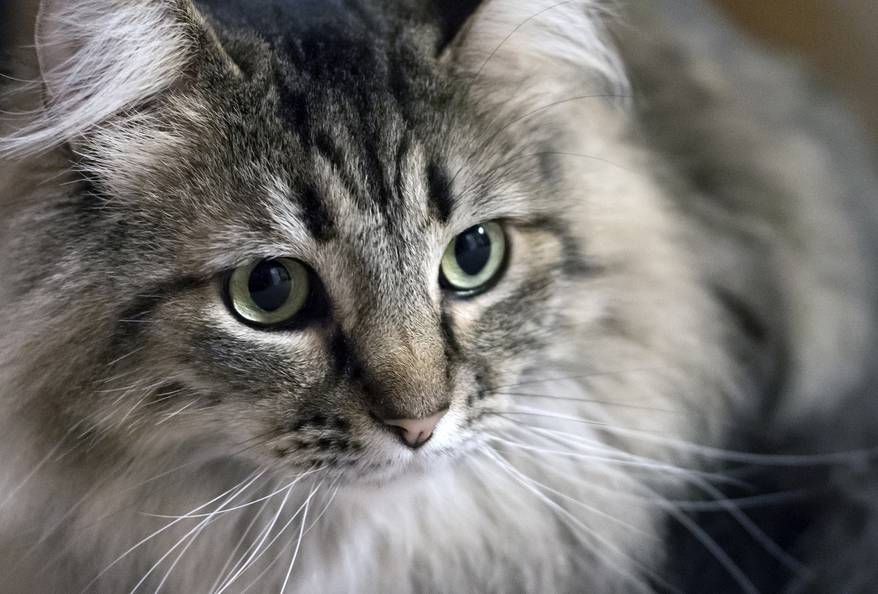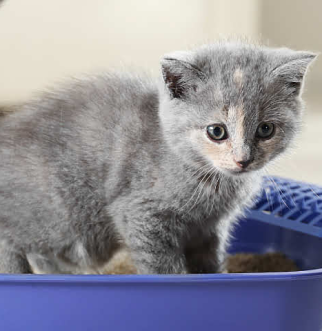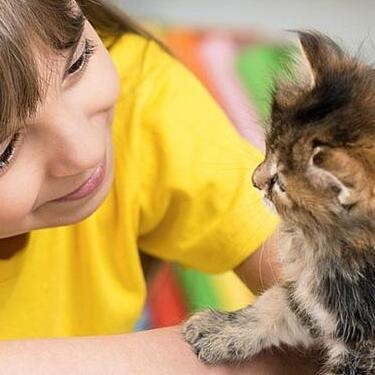
-
Find the right food for your pet
Take this quiz to see which food may be the best for your furry friend.
Find the right food for your pet
Take this quiz to see which food may be the best for your furry friend.
Featured products
 Small & Mini Savory Stew with Chicken & Vegetables Dog Food
Small & Mini Savory Stew with Chicken & Vegetables Dog FoodA delicious complement to the nutrition of Science Diet Small & Mini 7+ dog food
Shop Now Adult Healthy Cuisine Roasted Chicken, Carrots & Spinach Stew Dog Food
Adult Healthy Cuisine Roasted Chicken, Carrots & Spinach Stew Dog FoodDelicious roasted chicken paired with tender vegetables in a succulent stew
Shop Now Adult 7+ Perfect Digestion Chicken, Whole Oats & Brown Rice Recipe Dog Food
Adult 7+ Perfect Digestion Chicken, Whole Oats & Brown Rice Recipe Dog FoodScience Diet's breakthrough nutrition supports ultimate digestive well-being & healthy microbiome for dogs age 7+
Shop NowFeatured products
 Adult 7+ Tender Tuna Dinner Cat Food
Adult 7+ Tender Tuna Dinner Cat FoodWith delicious chunks in a decadent gravy
Shop Now Adult 7+ Senior Vitality Chicken & Vegetable Stew Cat Food
Adult 7+ Senior Vitality Chicken & Vegetable Stew Cat FoodImproves Everyday Ability to Get Up & Go
Shop Now Adult Savory Entrée Can Variety Pack Cat Food
Adult Savory Entrée Can Variety Pack Cat FoodPrecisely balanced nutrition with the delicious taste of savory minced chicken to help fuel the energy needs of cats during the prime of their life
Shop Now -
Dog
- Dog Tips & Articles
-
Health Category
- Weight
- Food & Environmental Sensitivities
- Urinary
- Digestive
- Joint
- Kidney
-
Life Stage
- Puppy Nutrition
- Adult Nutrition
- Senior Nutrition
Cat
- Cat Tips & Articles
-
Health Category
- Weight
- Skin & Food Sensitivities
- Urinary
- Digestive
- Kidney
-
Life Stage
- Kitten Nutrition
- Adult Nutrition
Featured articles
 Do Dogs and Cats have Belly Buttons?
Do Dogs and Cats have Belly Buttons?Learn whether cats & dogs have belly buttons like humans, what the function is, and if there are any health concerns associated with it.
Read More Does My Pet Hate Me?
Does My Pet Hate Me?Learn tips for bonding with your pet if you've ever thought, 'My dog doesn't like me, or 'Why do I have a standoffish cat?'
Read More Why Are Dogs and Cats So Cute?
Why Are Dogs and Cats So Cute?If waggy puppy dog tails and furry kitten yawns make you swoon, you're not alone. Why are cats so cute? And, dogs too! Let's find out!
Read More -


Cats are masters of disguise when it comes to discomfort and disease: they try hard not to let you know when they're weak, in pain or feeling sick. Nowhere does this seem more true than when you're talking about cat heart health, specifically the risk for feline heart disease.
Cats' wild ancestry makes them loath to show weakness for fear of being eaten by a predator. This instinct can make things tough for cat parents, especially for nervous newbies. You may be told to be on the lookout for evidence of illness, but do you know what to look for when it comes to your kitty's heart health?

Whether human or feline, the basics of heart health are the same: the heart is a muscle that pumps blood through the vessels of the body so it can deliver oxygen. If the heart stops pumping efficiently, the body risks becoming oxygen-depleted.
Unfortunately, heart disease and the issues associated with heart disease in cats tend to sneak up on you. Weakness, difficulty walking, and breathing difficulties can be subtle and hard to see.
Thankfully, a cat parent who's armed with some basic knowledge and a trusted veterinarian can:
- Identify the signs of feline heart disease
- Slow the onset of any signs
- Do their best to prevent the disease altogether
Types of Heart Disease in Cats
Cats get many kinds of heart disease but the most common is called cardiomyopathy, according to the Cornell Feline Health Center. This is a condition in which the left atrium of the heart muscle thickens, making it difficult for the blood to be pumped through. When this happens, fluid builds up in the lungs, a process referred to as congestive heart failure.
Hypertrophic cardiomyopathy is the most common kind of cardiomyopathy, writes Cornell. It's considered an inherited disorder and can affect cats of all ages but is typically diagnosed in older cats. Cats can also get cardiomyopathy from a nutritional deficiency in the amino acid taurine. Pets eating fish-only foods (naturally low in taurine) run the risk of damaging their hearts in this way.
Geriatric cats can also get cardiomyopathy when scar tissue builds up over time inside the heart. This occurs in about 10 percent of cardiomyopathy cases. Cornell also notes that congenital heart disorders are rare, affecting only 1 to 2 percent of kittens.



Tasty Tips
Feline Heart Disease FAQs
What are the risk factors?
Genetics play a large role in heart disease. Persians, Ragdolls, Maine coons and American shorthairs appear predisposed to hypertrophic cardiomyopathy, says the American College of Veterinary Internal Medicine, though all cats can develop this condition.
An incomplete meal plan (especially one that relies exclusively on fish) is a risk factor for cardiomyopathy, as well. Make sure to talk to your vet about ensuring your cat gets a well-balanced meal.
Can you prevent heart disease in cats?
In some cases, you can. Making sure your kitty gets balanced, complete meals is fundamental to preventing heart disease.
How does exercise help with heart health?
A healthy weight is crucial to an energetic and enjoyable life, but avoiding obesity is especially important for those who suffer the symptoms of heart disease. Cats may experience a heart problem more severely if they're carrying excess weight. Take time each day to play with your cat. A few minutes each day is enough exercise for your cat to help keep the weight off and help fuel with heart health.
Does nutrition play a role in heart disease prevention?
Apart from complete and balanced meals in quantities tailored to your cat's caloric needs (to keep her at a trim weight), there's no specific meal plan recommended for prevention. If treatment becomes necessary, however, ask your vet if you'll need to make any changes to your cat's food to help manage the disease.
What else should I know?
Diseases like hyperthyroidism, hypertension and anemia can all affect the heart's fundamental workings. It's important to recognize these early and manage them carefully. If your cat suffers from a combination of heart disease and another health condition, treating one issue can sometimes alleviate the other.
Some cats with heart disease can develop a painful, paralyzing condition called saddle thrombus if a blood clot develops in the heart and moves out of the aorta. The clot blocks blood flow to a cat's hind legs, making them cold to the touch or even bluish under the fur. Bring your cat in for wellness exams to have her heart rhythm checked, and seek emergency care immediately if she starts dragging her back legs.
Monitoring Cat Heart Health
The most important thing to know when it comes to monitoring heart health in cats is that veterinarians can often identify heart disease before symptoms occur. A heart murmur, audible via stethoscope, is the most common clue. Blood tests and a complete physical examination at least once a year are highly effective at screening your pet for other diseases that can affect her heart.
We all know it can be hard getting a cat to the vet, but can you think of a better reason than keeping her heart in good shape? Watching out for your kitty's cardiac well-being will keep her around to love you for that much longer.


Dr. Patty Khuly is an award-winning veterinarian known for her independent thinking, her spirited pet advocacy, her passion for the veterinary profession, and her famously irreverent pet health writing.
Dr. K is an honors graduate of both Wellesley College and the University of Pennsylvania School of Veterinary Medicine. She received her MBA at The Wharton School of Business as part of the prestigious VMD/MBA dual-degree program. She now owns Sunset Animal Clinic, a veterinary practice in Miami, Florida.
Related products
Related articles

What is the best food for an overweight cat? Learn all about weight control food for cats, including what's in it and how it works.

Cats are naturally very clean and chances are your kitten will already have learned how to use the litter box from her mother before she comes to live with you.

Discover how to train your cat, starting with very basic first steps that both reward good behavior and discourage the bad.

How do you get a cat to lose weight? Learn all about cat foods for weight loss, including how to choose weight control cat food and exercise tips.

Put your cat on a diet without them knowing
Our low calorie formula helps you control your cat's weight. It's packed with high-quality protein for building lean muscles, and made with purposeful ingredients for a flavorful, nutritious meal. Clinically proven antioxidants, Vitamin C+E, help promote a healthy immune system.
Put your cat on a diet without them knowing
Our low calorie formula helps you control your cat's weight. It's packed with high-quality protein for building lean muscles, and made with purposeful ingredients for a flavorful, nutritious meal. Clinically proven antioxidants, Vitamin C+E, help promote a healthy immune system.

